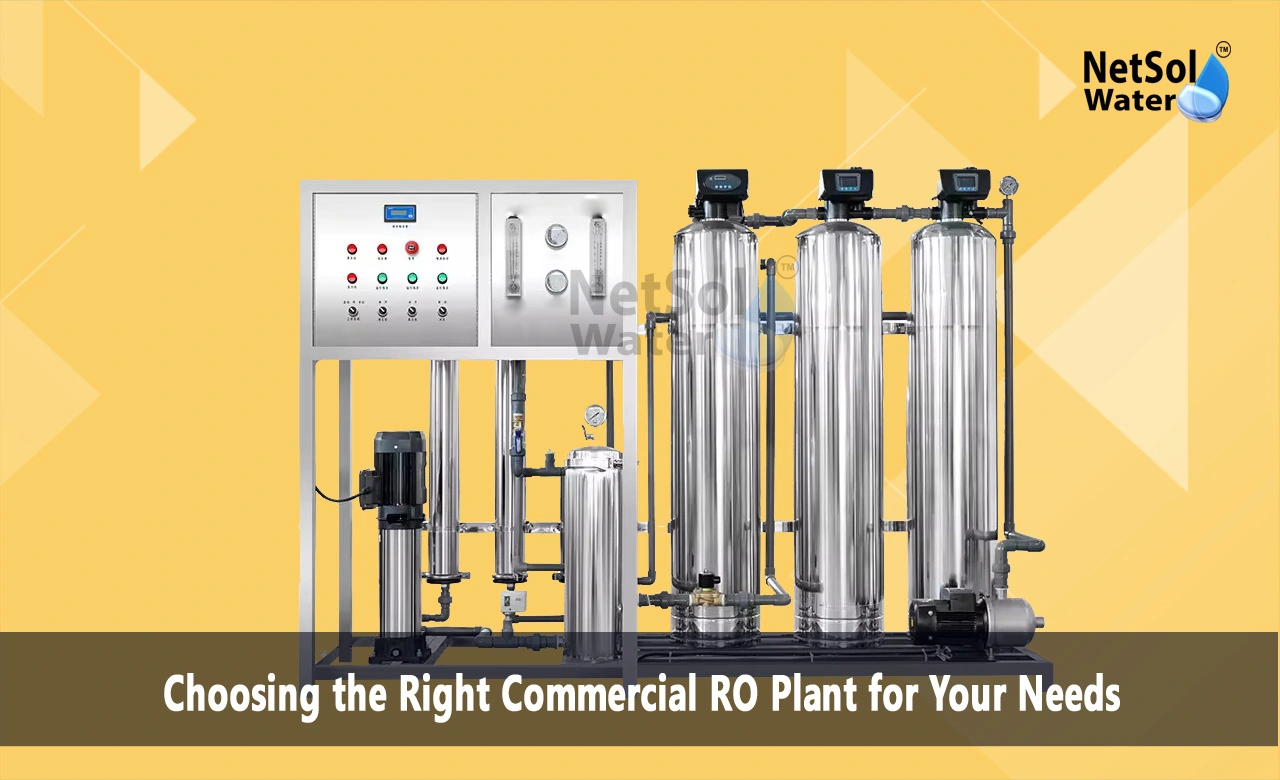How to Choose the Right Commercial RO Plant for Your Needs?
When it comes to industrial water treatment and purification, reverse osmosis continues to be one of the most widely used and effective technologies available. Commercial RO plants provide a reliable way to remove dissolved salts, particles, colloids, organics and other contaminants from water to produce high-purity product water. However, not all commercial RO plants are created equal. There are many different configurations, models, and manufacturers from which to choose. Selecting the wrong RO plant could lead to inadequate performance, excessive operating costs, premature membrane failure and ongoing headaches.
We'll cover key considerations to ensure you invest in the right type and size of commercial RO plant to meet your specific needs for product water quality, production capacity, energy efficiency and more.
Define Your Product Water Requirements
The first key factor in RO plant selection is determining your target product's water quality requirements. This will dictate the overall purification levels needed and the type of RO plant configuration. Important water quality parameters to assess include:
• Total Dissolved Solids (TDS)
• Specific contaminants of concern (e.g. arsenic, nitrates, etc.)
• Product water conductivity/resistivity
• Required water purity (e.g. USP, semiconductor grade, etc.)
• Acceptable concentration of contaminants in the RO permeate
You'll need to analyse your feed water composition to understand the level of purification and pretreatment needed to meet your end water quality goals with an RO plant.
Determine Production Capacity Needs
Next, you need to calculate the water production capacity of your required product. This flow rate determines the appropriate size of the RO plant and the number/type of membrane elements. Critical factors include:
• Average and peak product water demand rates (GPD or m3/day)
• Any seasonal variation in demand
• Plans for any future increased capacity requirements
• Acceptable permeate recovery rates for your application
An experienced RO supplier can guide you based on your capacity needs, recovery expectations, and operating parameters like temperature/pressure to size the plant properly.
Account for Feed Water Characteristics
The characteristics of your feed water source also play a major role in determining the optimal RO plant design. Key considerations include:
• Feed water salinity & TDS levels: Higher salinity brackish or seawater will require different membranes and system design.
• Scaling potential: Levels of hardness, silica, metals, etc., that could lead to membrane scaling impacts pretreatment needed.
• Fouling contaminants: Particulates, colloids, organics and other fouling risks affect pretreatment/prefiltration.
• Temperature range: Colder feed water reduces membrane permeability.
• Feed water pressure and pumping requirements
Analysing the feed water comprehensively is critical for optimising the RO plant design with the proper membranes and integrated pretreatment system.
Energy and Environmental Considerations
You'll also want to assess the energy efficiency and environmental footprint of potential RO plants. Key factors include:
• System energy recovery and energy consumption rates
• Chemical usage, storage, handling and disposal requirements
• Physical footprint and installation requirements
• Maintenance, consumables and residuals disposal/discharge
Many advanced RO plants emphasise eco-friendly design with low chemical usage, high energy recovery, zero liquid discharge capabilities and automated controls to optimise efficiency.
Additional Factors for RO Plant Selection
Some other important considerations when choosing the right commercial RO plant include:
• Redundancy, flexibility and expandability for future needs
• Automated controls, instrumentation and integration capabilities
• Simple operation and easy maintenance/servicing
• Project delivery timeframes
• Capital and operating costs over the full lifecycle
Conclusion:
A reputable RO plant supplier can guide you through evaluating all technical, performance and economic factors for your specific application and budget.Investing in a properly sized, configured and designed commercial RO plant is essential to getting consistent performance, reliability, and economy for your industrial water treatment needs. By carefully assessing your quality and capacity requirements upfront, you can ensure the RO plant you select will be the right long-term solution.
To explore customised commercial RO plants, Industrial RO plants, ETP or STP solutions for your needs in your areas and nearby regions, contact Netsol Water at:
Phone: +91-965-060-8473, Email: enquiry@netsolwater.com



